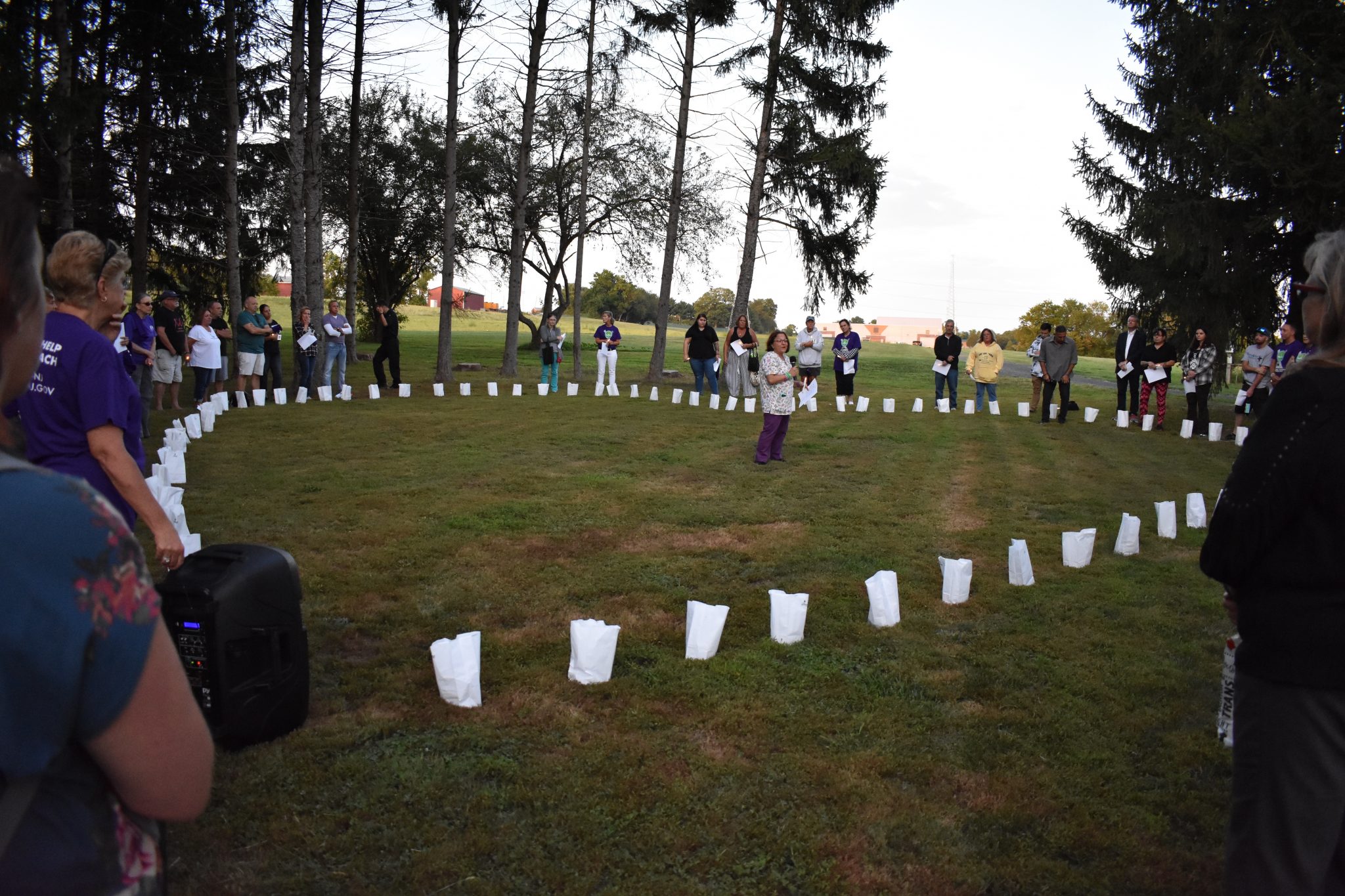Families and friends of those who have lost a battle with drug addiction shared stories and provided support to others during International Overdose Awareness Day.
On Aug. 27 at the grounds of Woolsey Park in Hopewell Township, people gathered to mourn the ones they lost, honor their memories and honor individuals who continue to battle against drug addiction.
“What is really important to me is that Hopewell Valley was selected to host this event, because we have problems just like every other community. It takes a lot for our elected officials and for local folks to admit we have issues in our community,” said Heidi Kahme, Hopewell Valley Municipal Alliance coordinator.
The evening event was designed as a way to de-stigmatize drug related deaths, provide educational support service options to those in need and help educate on overdose prevention, according to officials.
“The stigma is starting to wane. Just coming together and supporting one another is important,” she said. “Even for me, someone in prevention work I have a whole new understanding for people that don’t unfortunately get the help and support they need early enough. The timing for this event could not be any better.”
Kahme explained that education is key.
“I think much more support should be given to organization that are helping battle against drug addiction, because as everyone said it cannot be done alone. Education and prevention is key,” she said. “Knowing and learning that there is support for those who are still struggling is also important. Those who have lost you see their passion for wanting to give back to others who are struggling.”
The International Overdose Awareness Day event was a coordination between the Mercer County Prosecutor’s Office, the Prevention Coalition of Mercer County and the Hopewell Valley Community.
“We started planning this event three or four months ago. We had about 20 organizations here tonight and was a collaborative effort,” Kahme explained.
She reported that the municipal alliance has put together an opioid program and has been able to have Hopewell Valley representatives share their stories.
“We have to constantly bring this to the forefront and constantly do events like these. This is great at the county-wide level, but locally we have to continue to have the conversations,” Kahme said. “This is an important issue we have to tackle.”
A candlelight vigil, which was in the shape of a heart, was held for attendees to light candles in their loved one’s memory.
During the vigil parents, friends and recovering addicts shared the stories of their loved ones and who they were when they realized they had a problem and how drug addiction is a battle that is constant.
One parent stated “As long as your son or daughter is breathing you have a shot.”
Sgt. Scott Kivet of the Robbinsville Police Department said that recovering advocates are important to the process of helping others seek treatment.
“We need to stay together. People who are recovery advocates, nonprofits and police departments must continue to work with each other,” he said. “Drug addiction is really a disease.”
A memorial display was also onsite along with a dropbox for old and unused medications.
According to the New Jersey Department of Health, in its latest report from 2012-17 Mercer County experience 354 drug related deaths.
Hopewell Township Chief of Police Lance Maloney reported that his department started experiencing multiple drug related overdoses in 2015.
“It is important to get the word out there that this opioid epidemic is everywhere. We as a community have to come together and fight this,” he explained. “Over the last three or four years we have experienced overdoses. We have had some success with narcan saves, but unfortunately have had incidents where people have passed away.”
Maloney said the department tries to educate people.
“The people we revive – we try to get them help. We sometimes arrest people with heroine, but also offer resources to get them help after arresting them,” he said. “One our biggest partners are Recovery Addicts of America. If we have somebody at the station, we call them in and we try to get them to treatment.”

